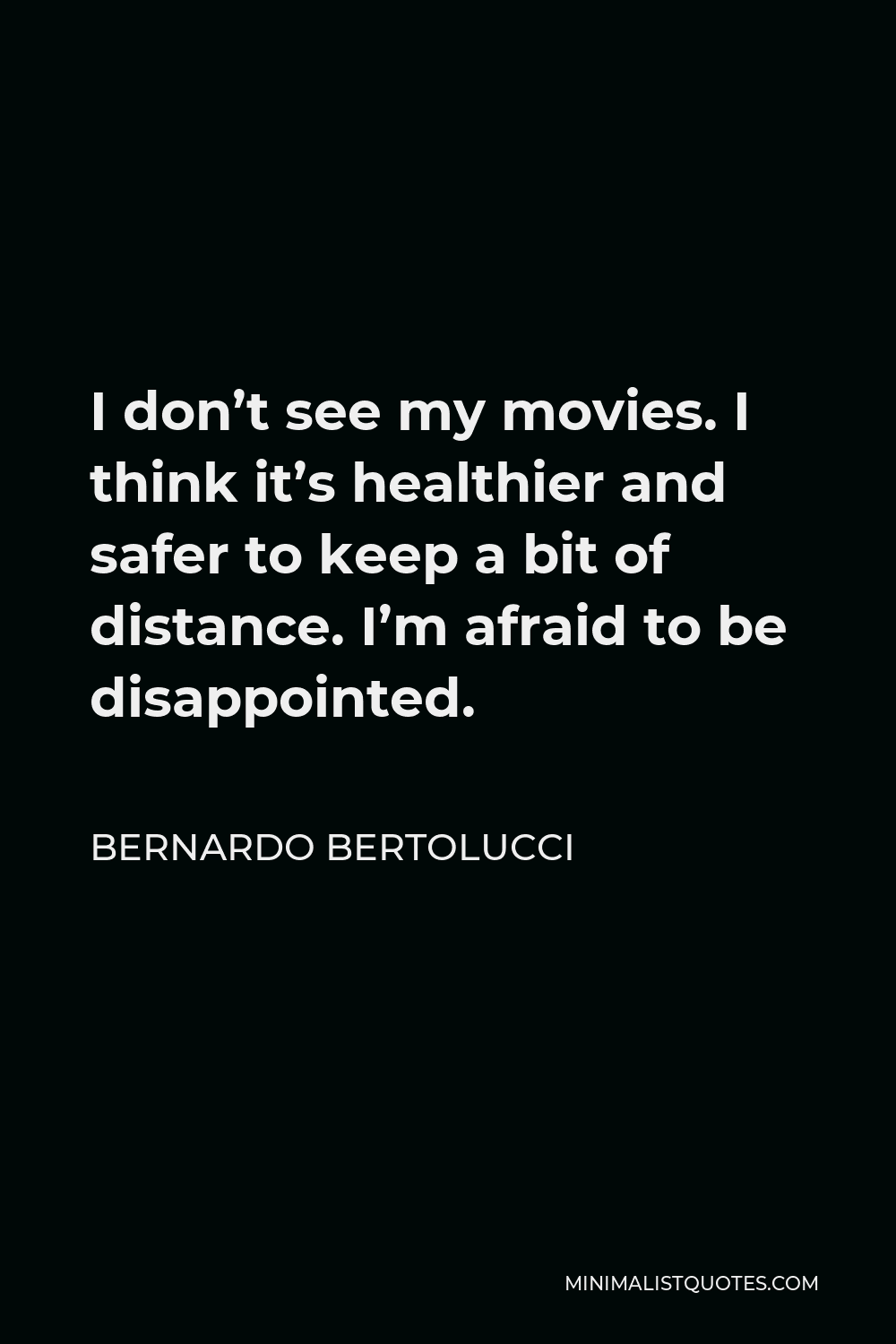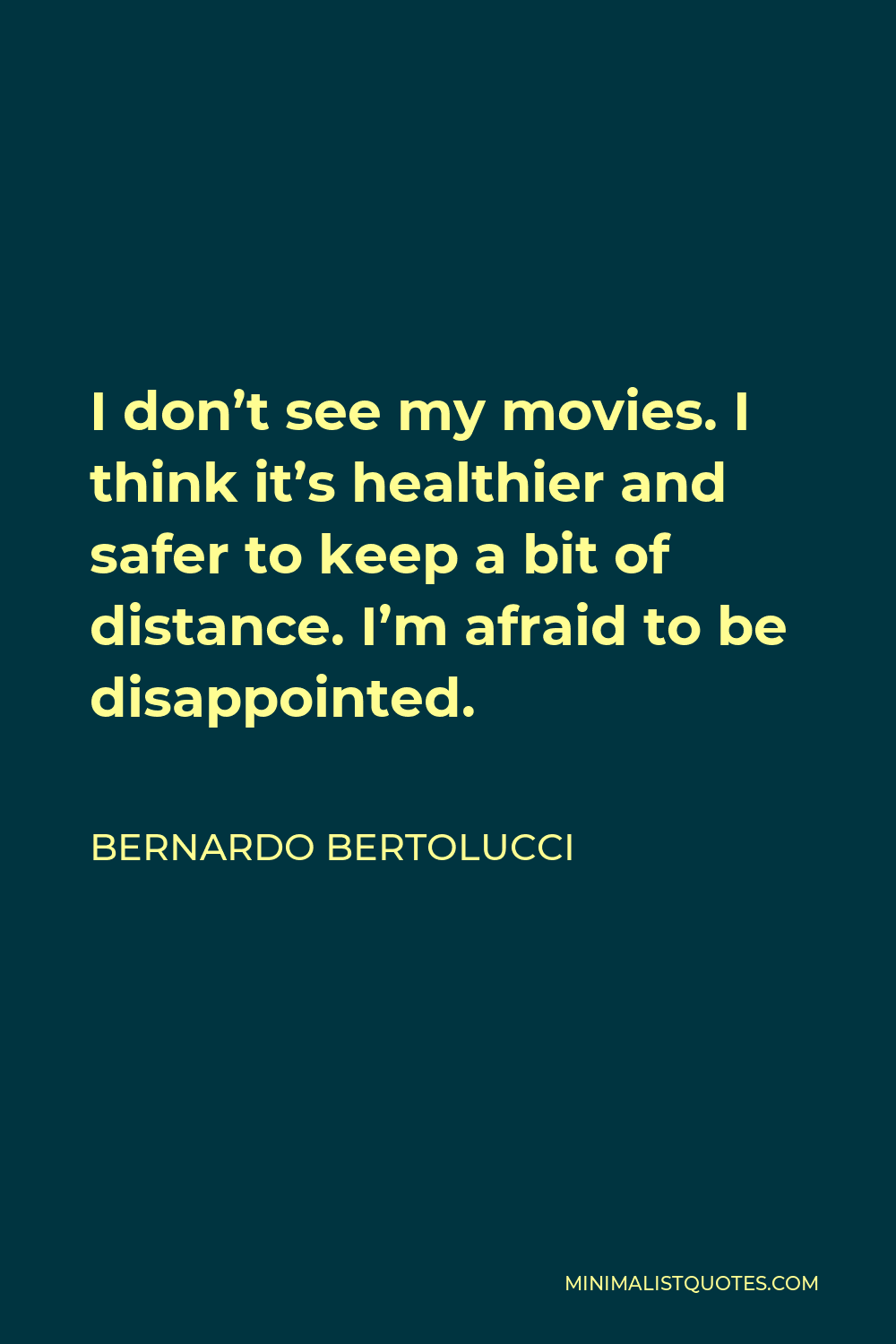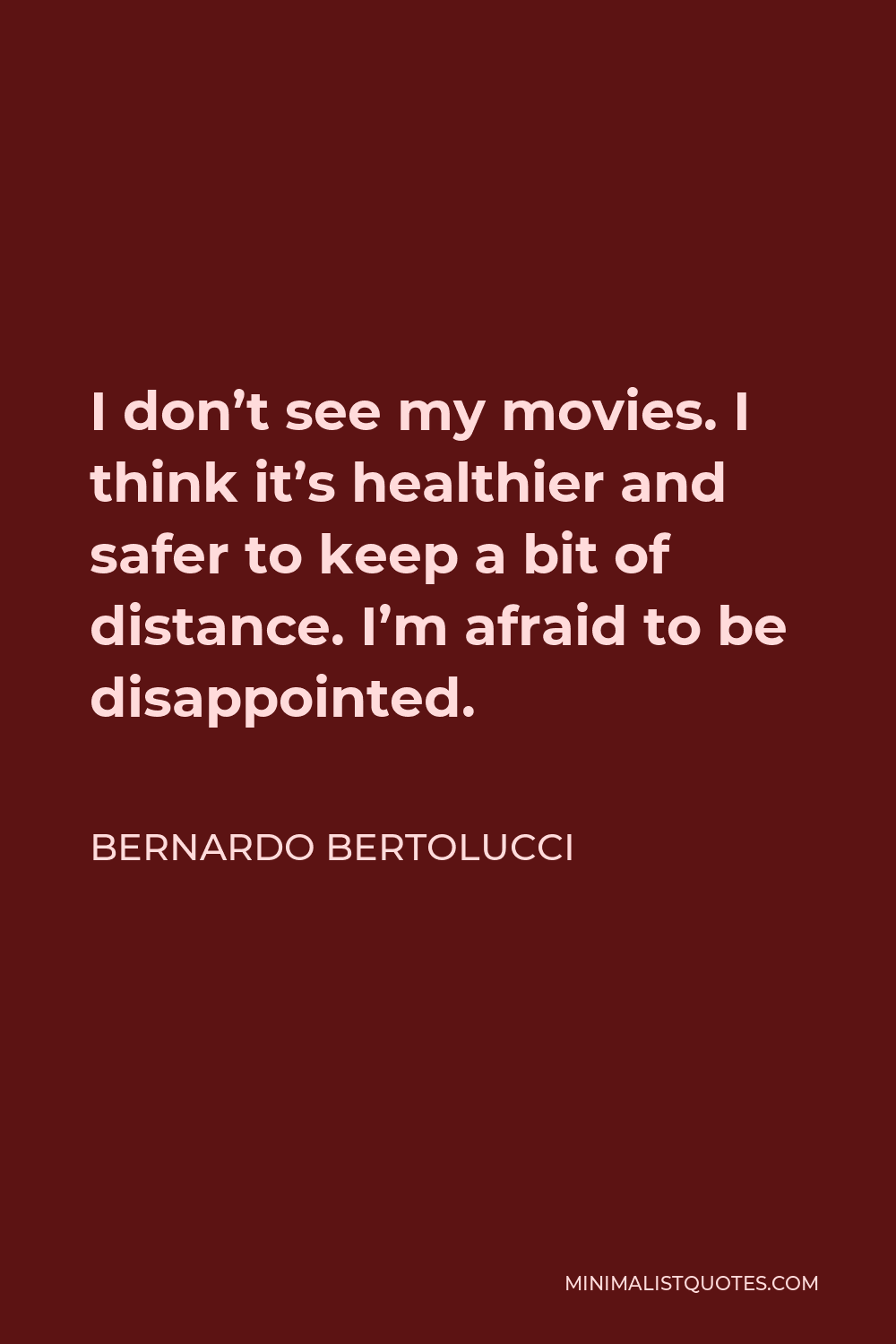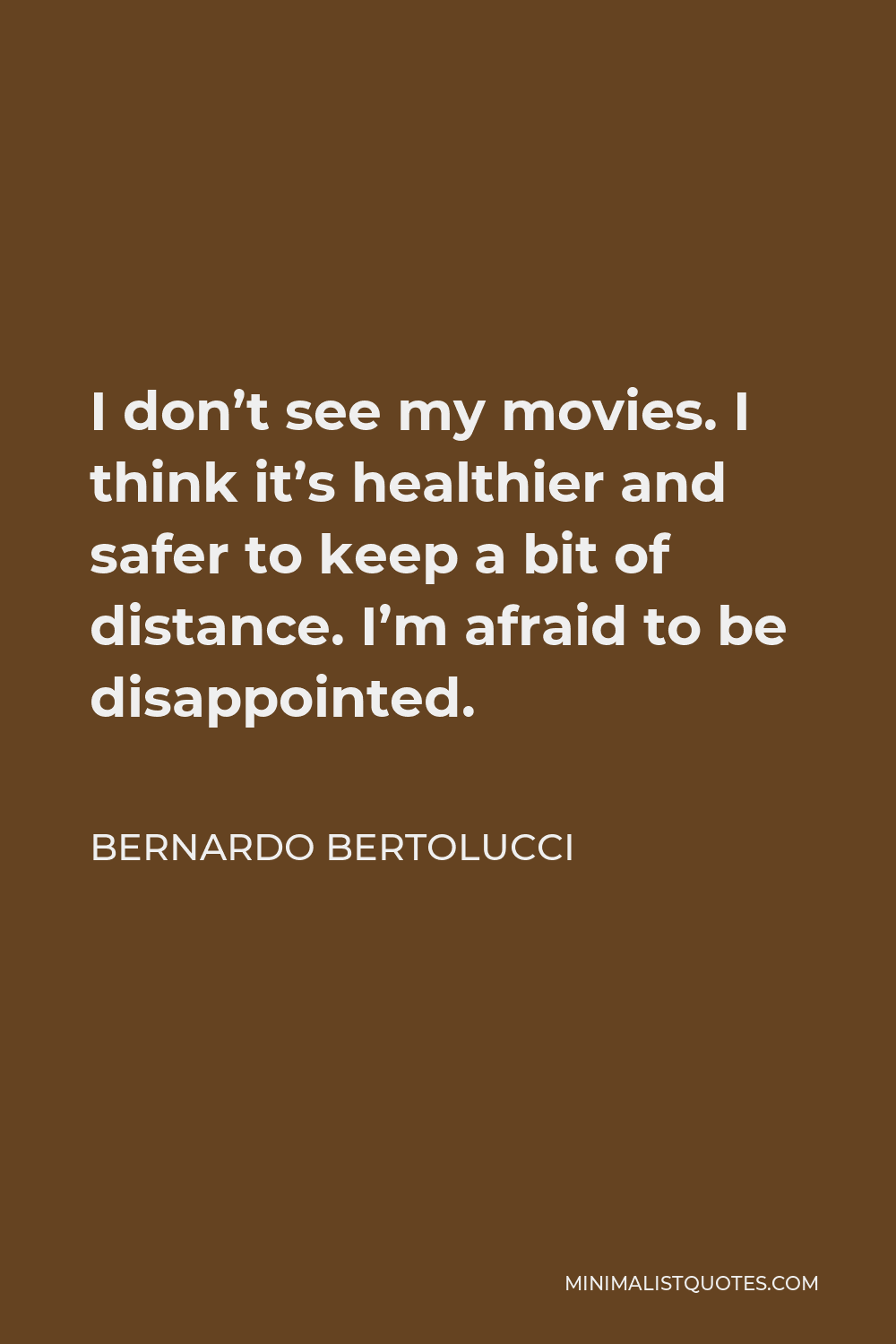I am in love with the idea of doing a movie in 3D. I think 3D would be great for the story I want to do, in a realistic, normal story, using 3D on the emotions in a kind of intimate story.
BERNARDO BERTOLUCCII don’t see my movies. I think it’s healthier and safer to keep a bit of distance. I’m afraid to be disappointed.
More Bernardo Bertolucci Quotes
-





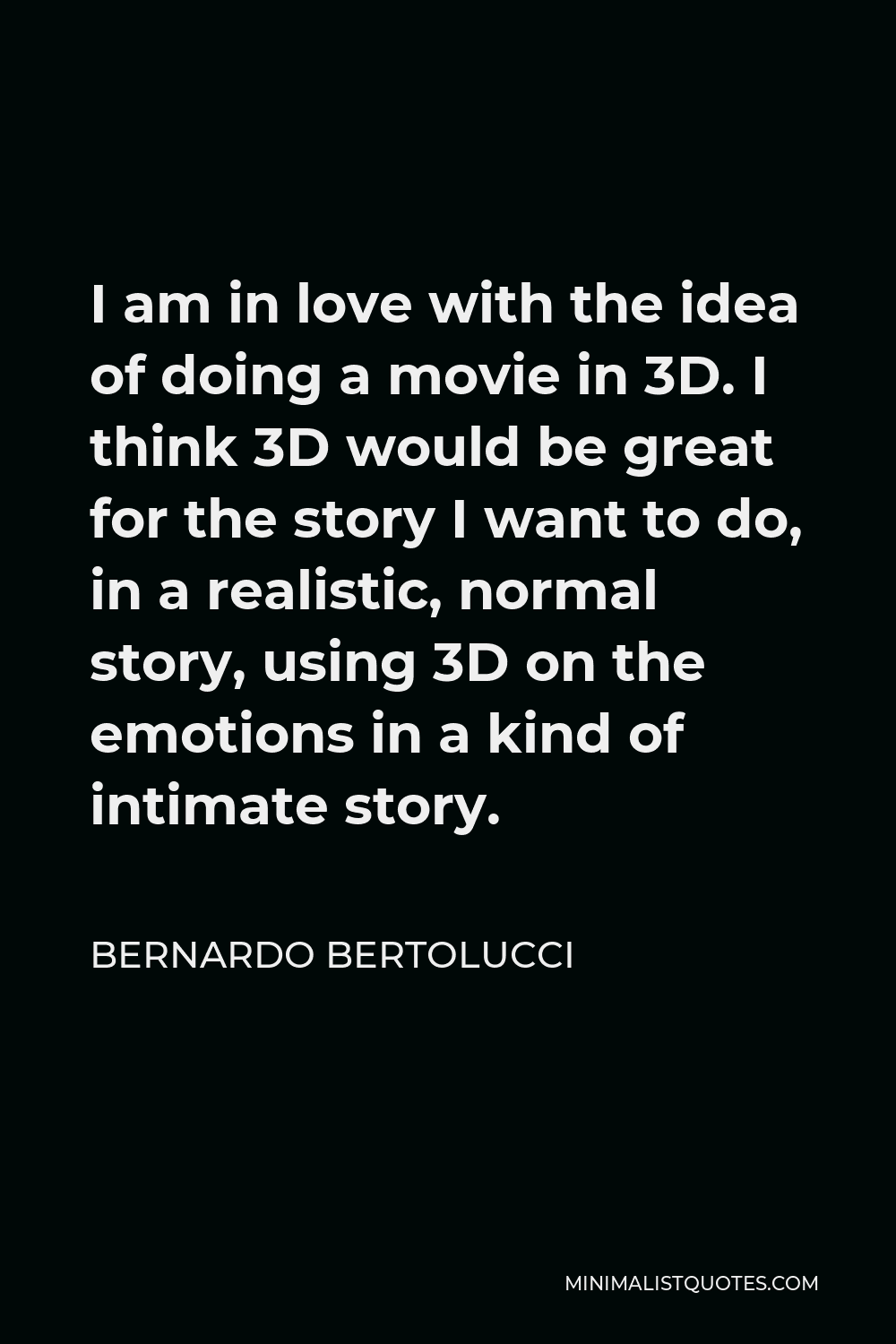
-





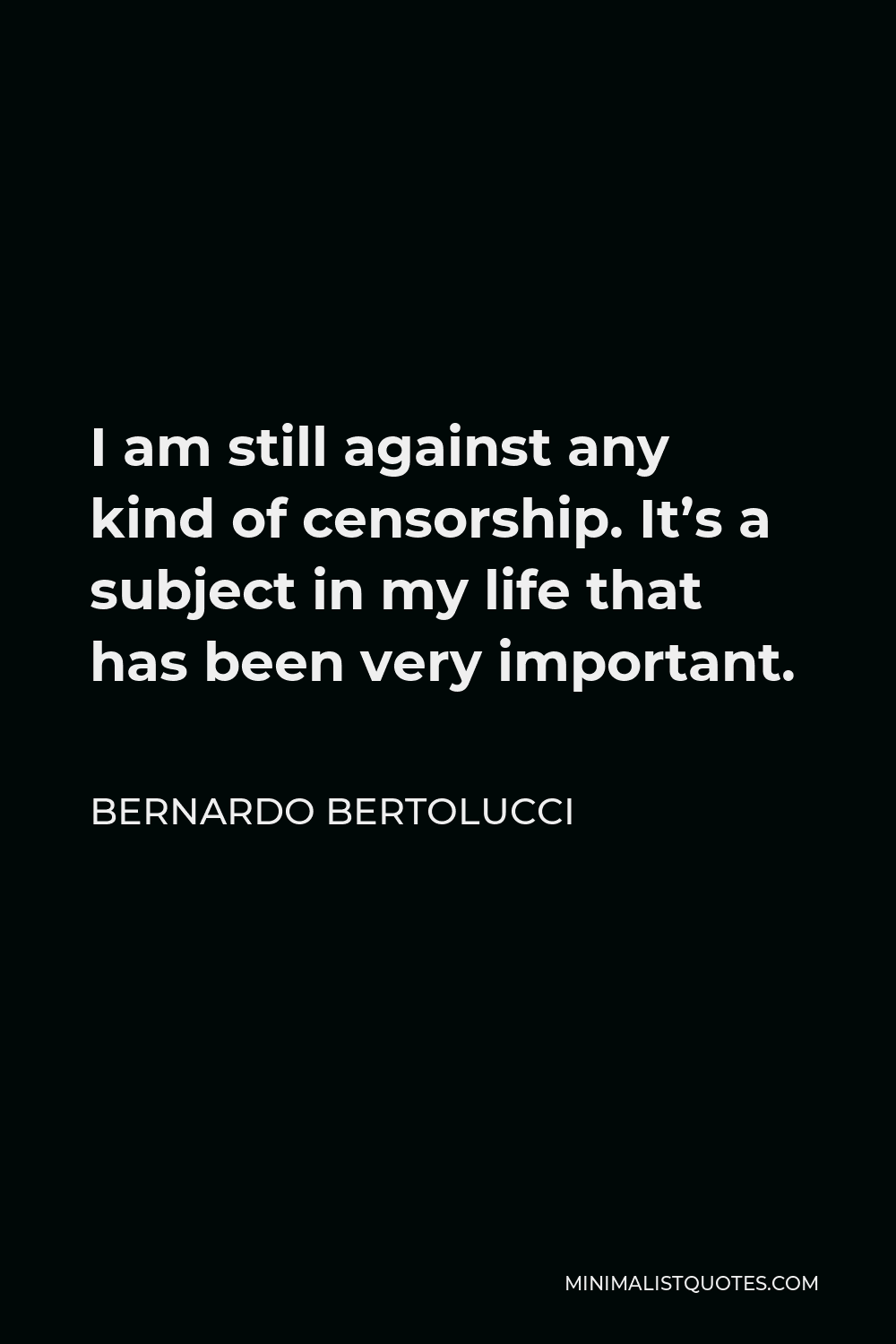
I am still against any kind of censorship. It’s a subject in my life that has been very important.
BERNARDO BERTOLUCCI -






A name? Oh, Jesus Christ. Ah, God, I’ve been called by a million names all my life. I don’t want a name. I’m better off with a grunt or a groan for a name.
BERNARDO BERTOLUCCI -





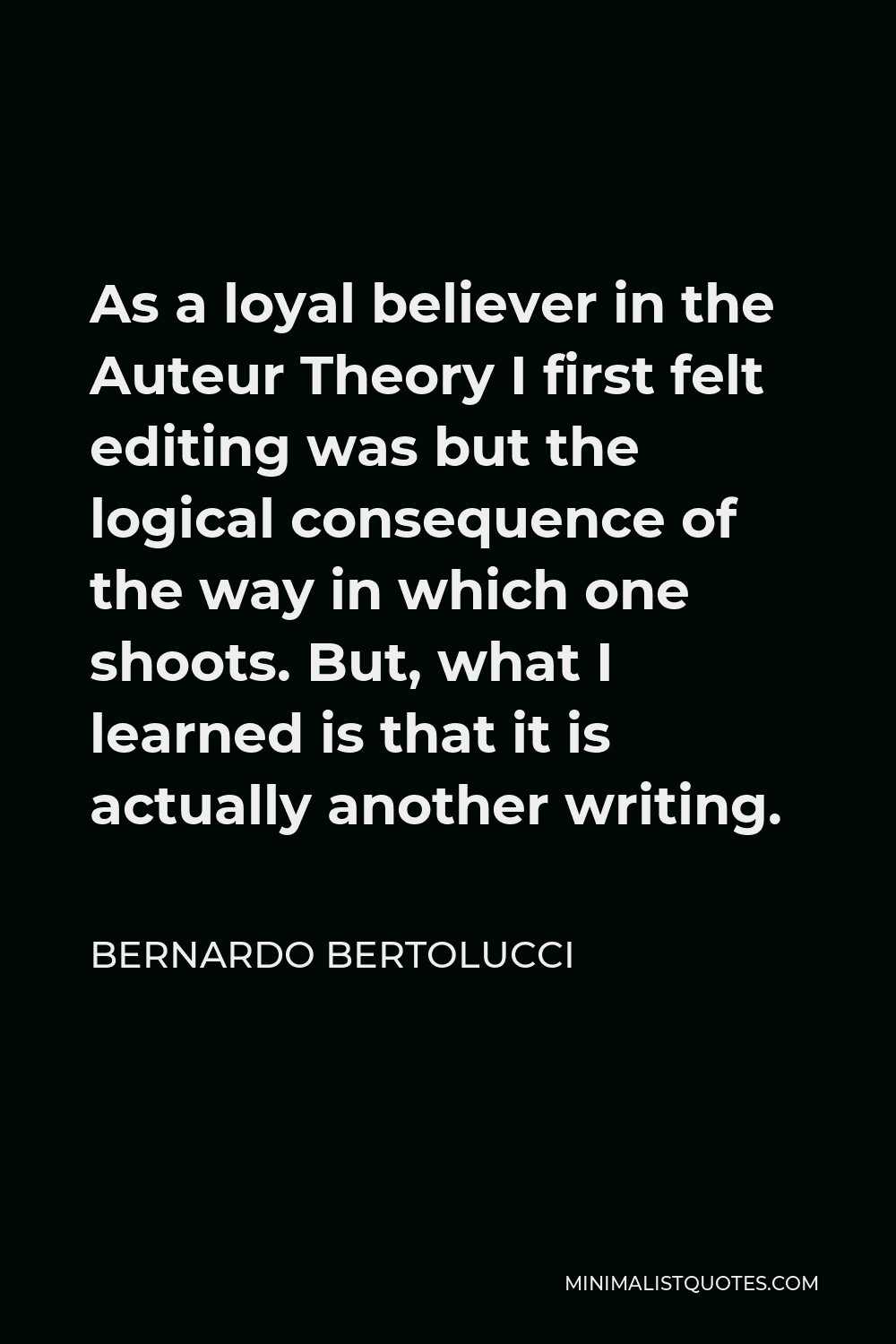
As a loyal believer in the Auteur Theory I first felt editing was but the logical consequence of the way in which one shoots. But, what I learned is that it is actually another writing.
BERNARDO BERTOLUCCI -





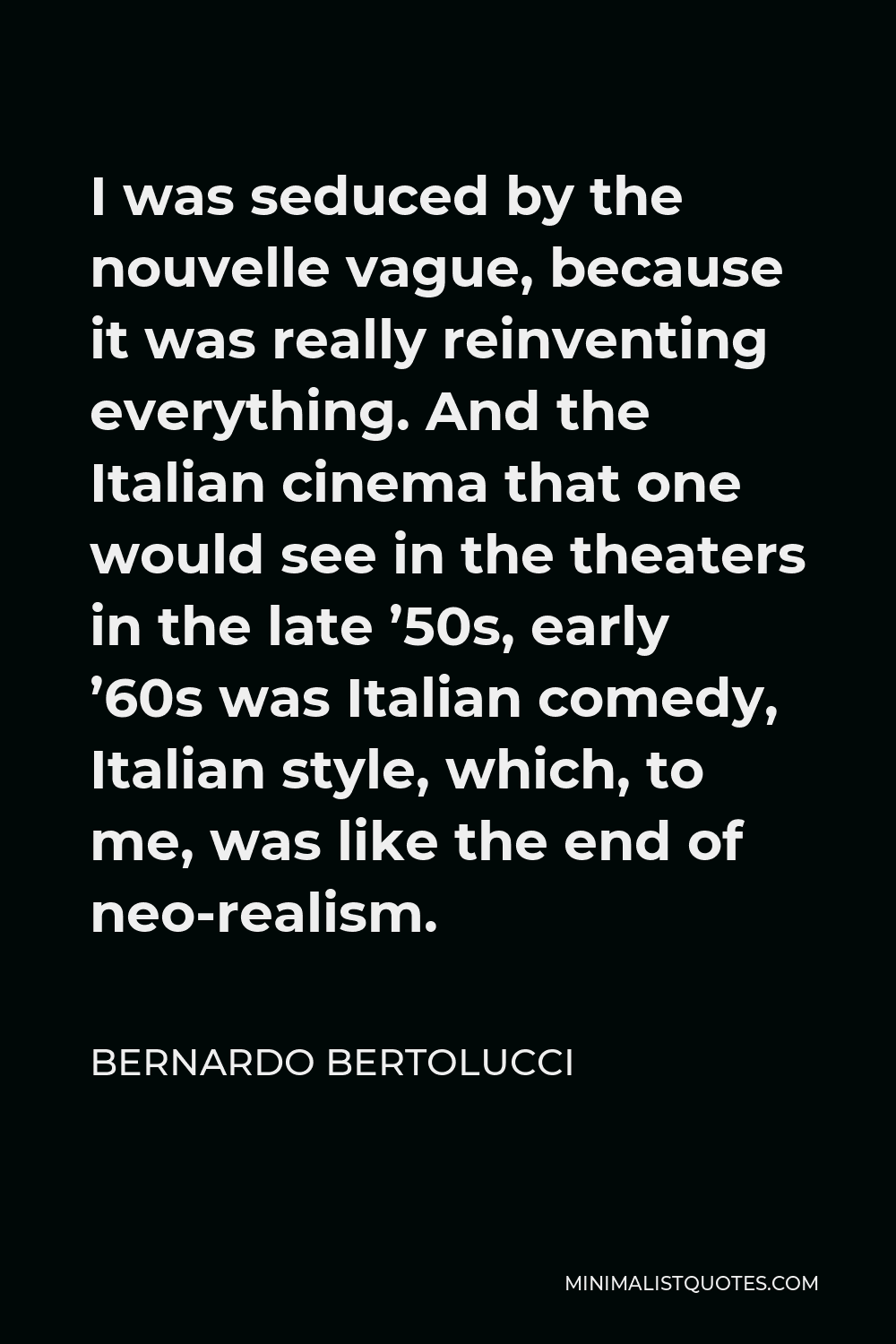
I was seduced by the nouvelle vague, because it was really reinventing everything. And the Italian cinema that one would see in the theaters in the late ’50s, early ’60s was Italian comedy, Italian style, which, to me, was like the end of neo-realism.
BERNARDO BERTOLUCCI -





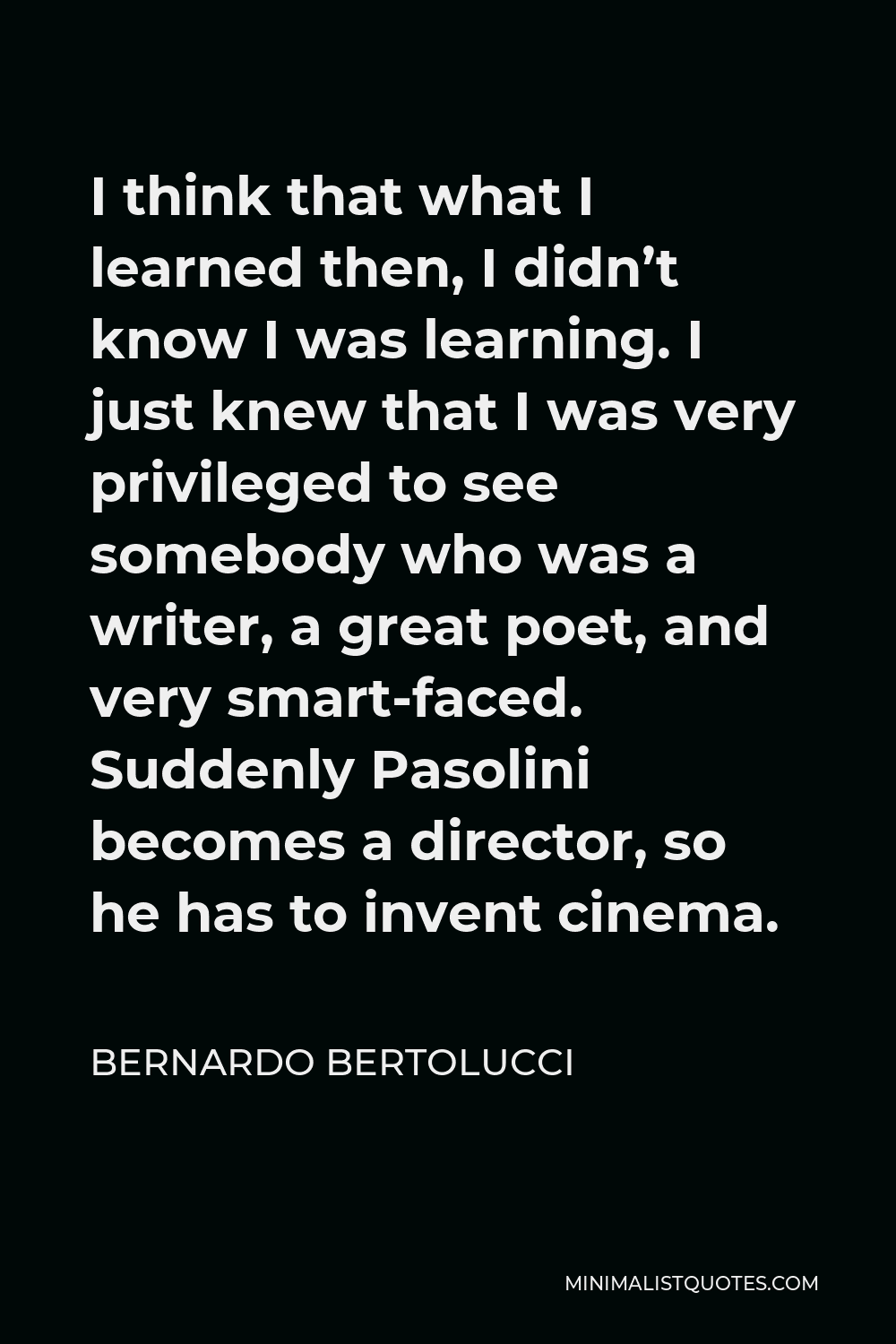
I think that what I learned then, I didn’t know I was learning. I just knew that I was very privileged to see somebody who was a writer, a great poet, and very smart-faced. Suddenly Pasolini becomes a director, so he has to invent cinema.
BERNARDO BERTOLUCCI -





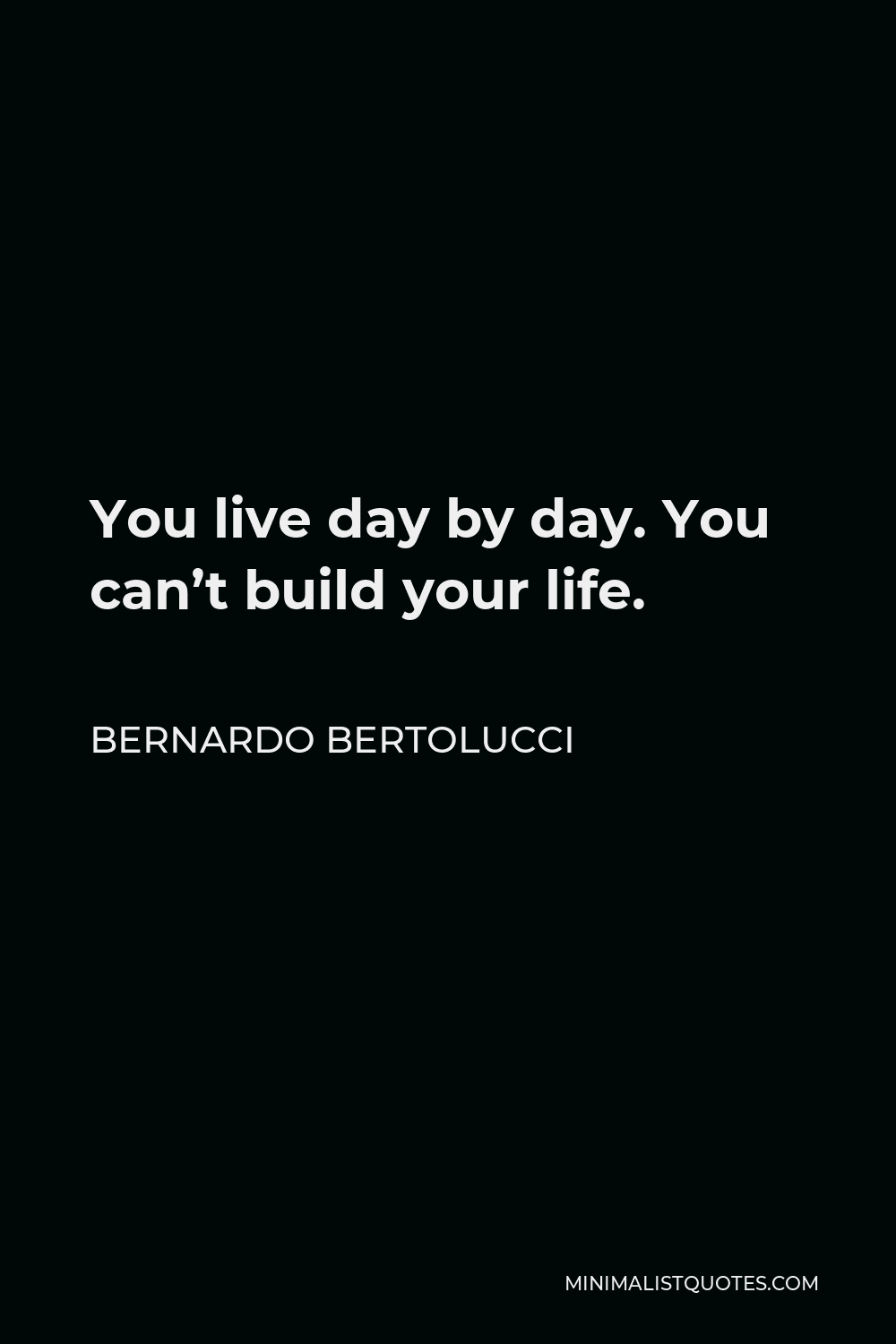
You live day by day. You can’t build your life.
BERNARDO BERTOLUCCI -






I like to be in a huis clos, as the French say – in one place. It’s something that in general can create a bit of claustrophobia. But for me, claustrophobia becomes almost immediately claustrophilia. I love it!
BERNARDO BERTOLUCCI -





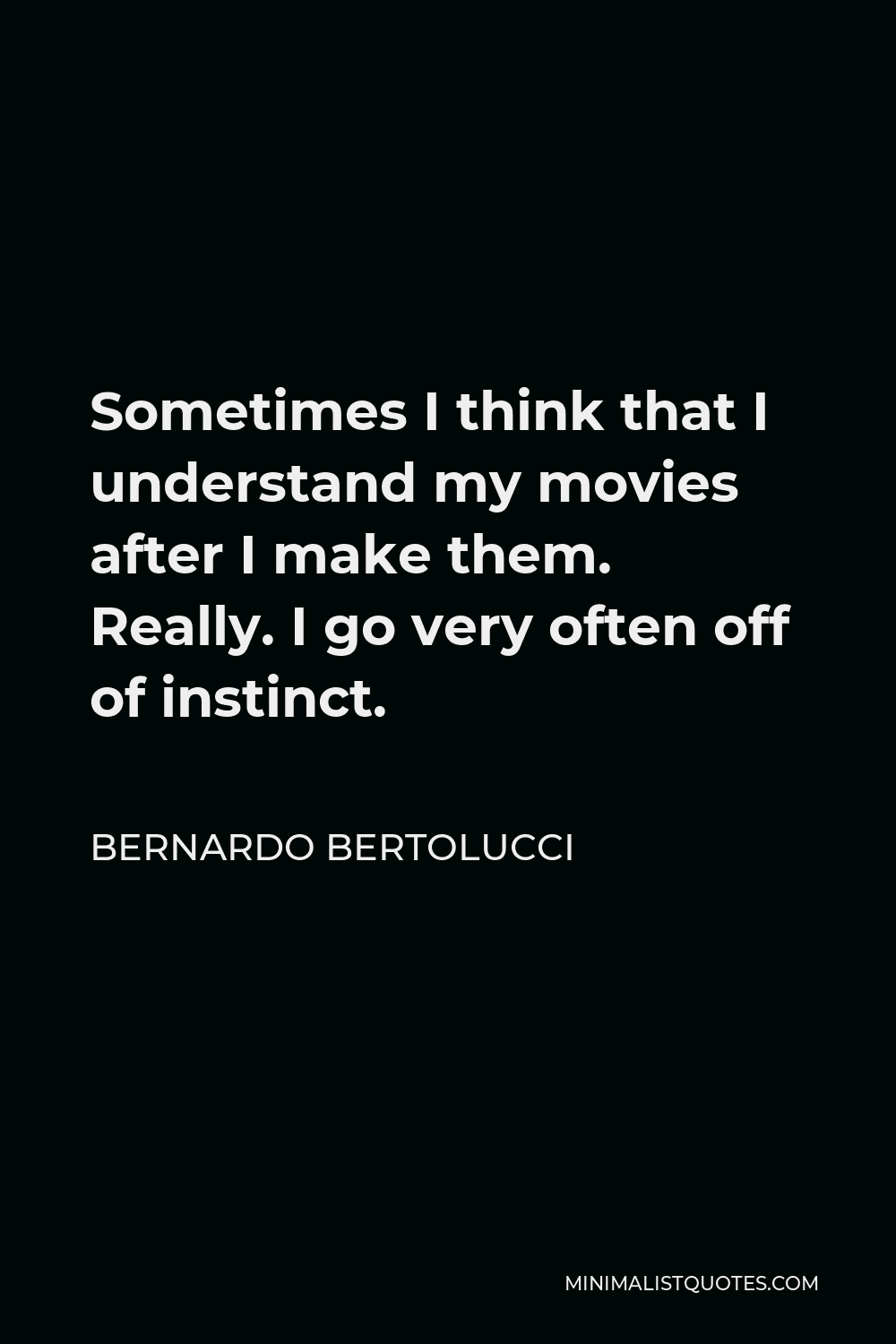
Sometimes I think that I understand my movies after I make them. Really. I go very often off of instinct.
BERNARDO BERTOLUCCI -





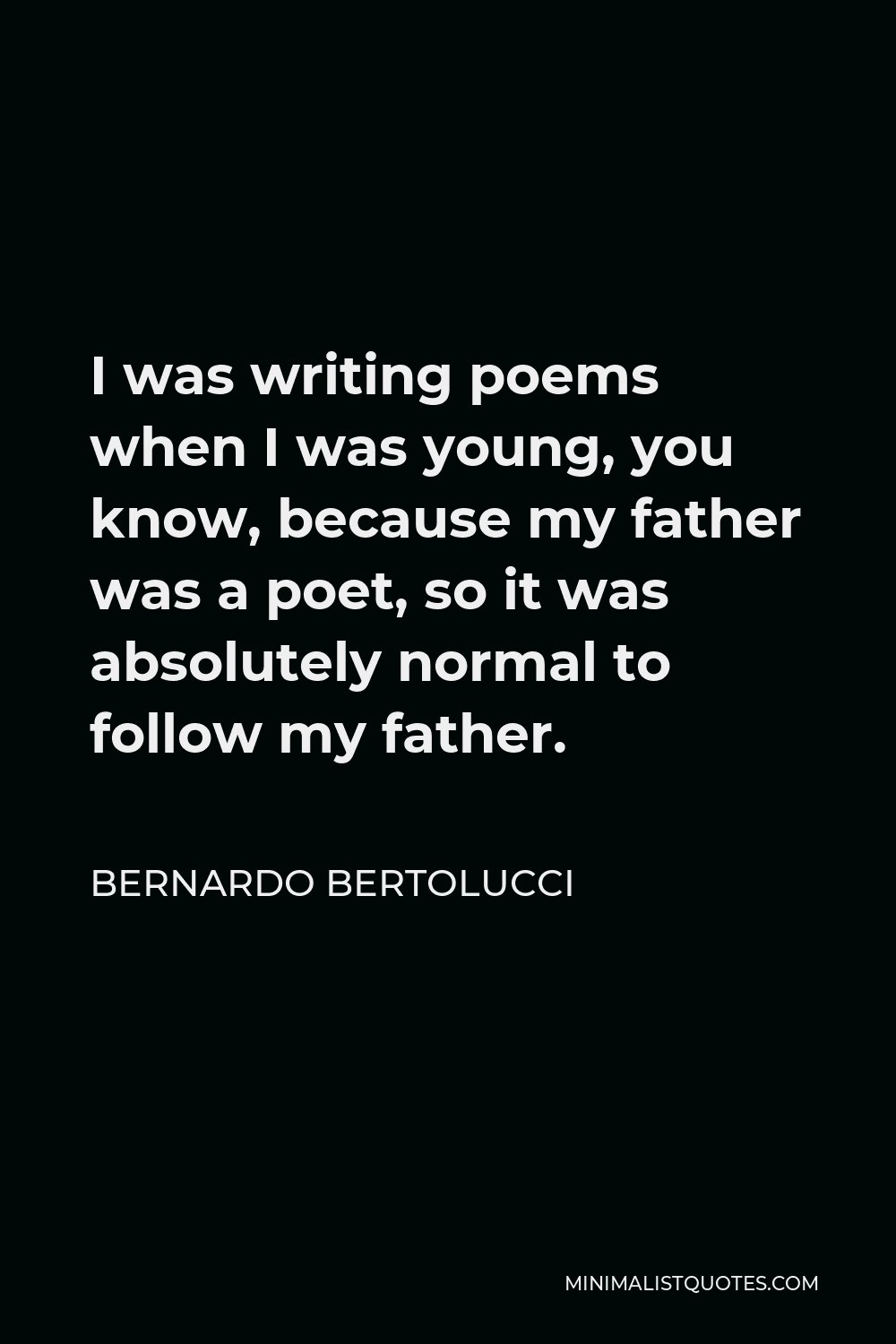
I was writing poems when I was young, you know, because my father was a poet, so it was absolutely normal to follow my father.
BERNARDO BERTOLUCCI -





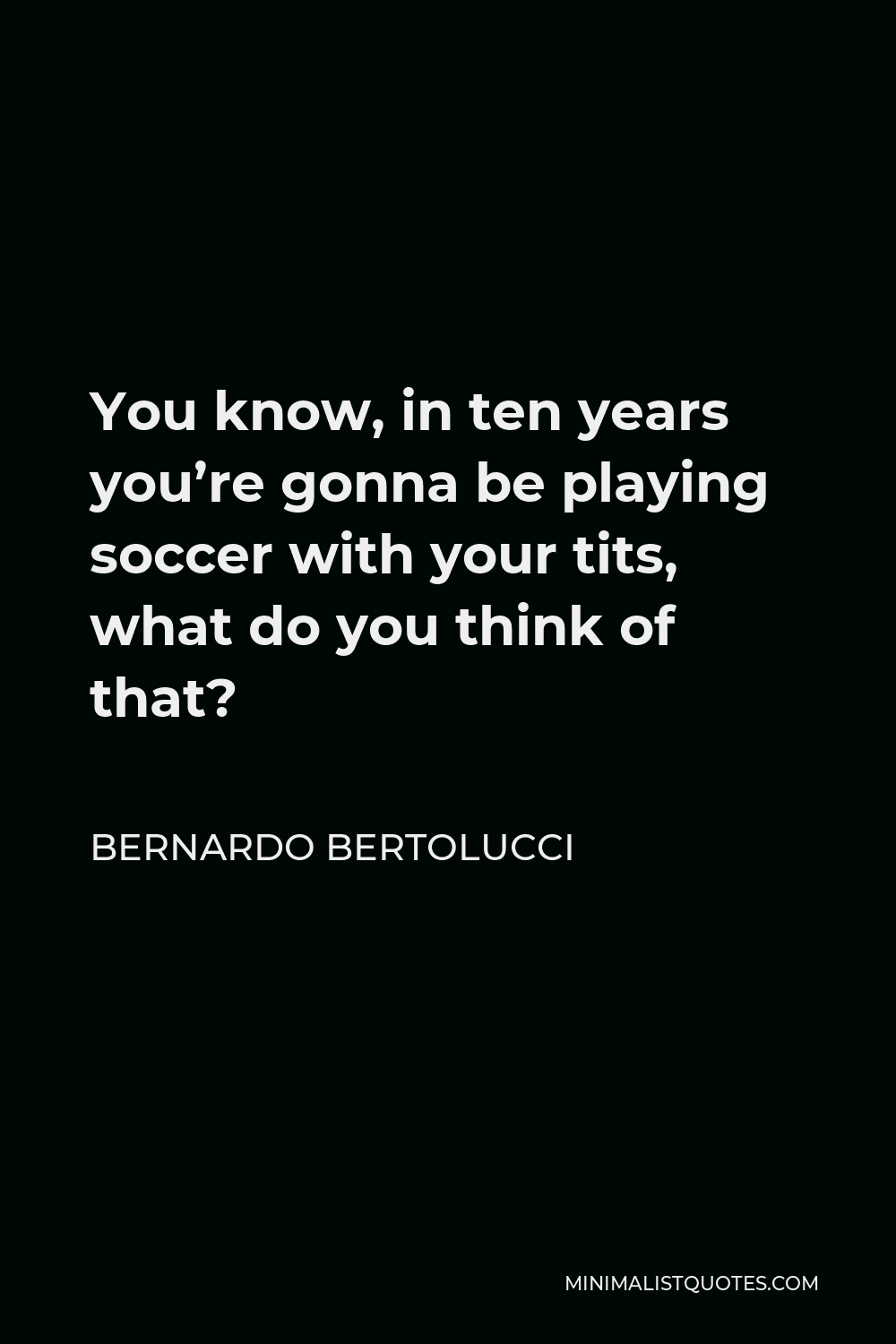
You know, in ten years you’re gonna be playing soccer with your tits, what do you think of that?
BERNARDO BERTOLUCCI -





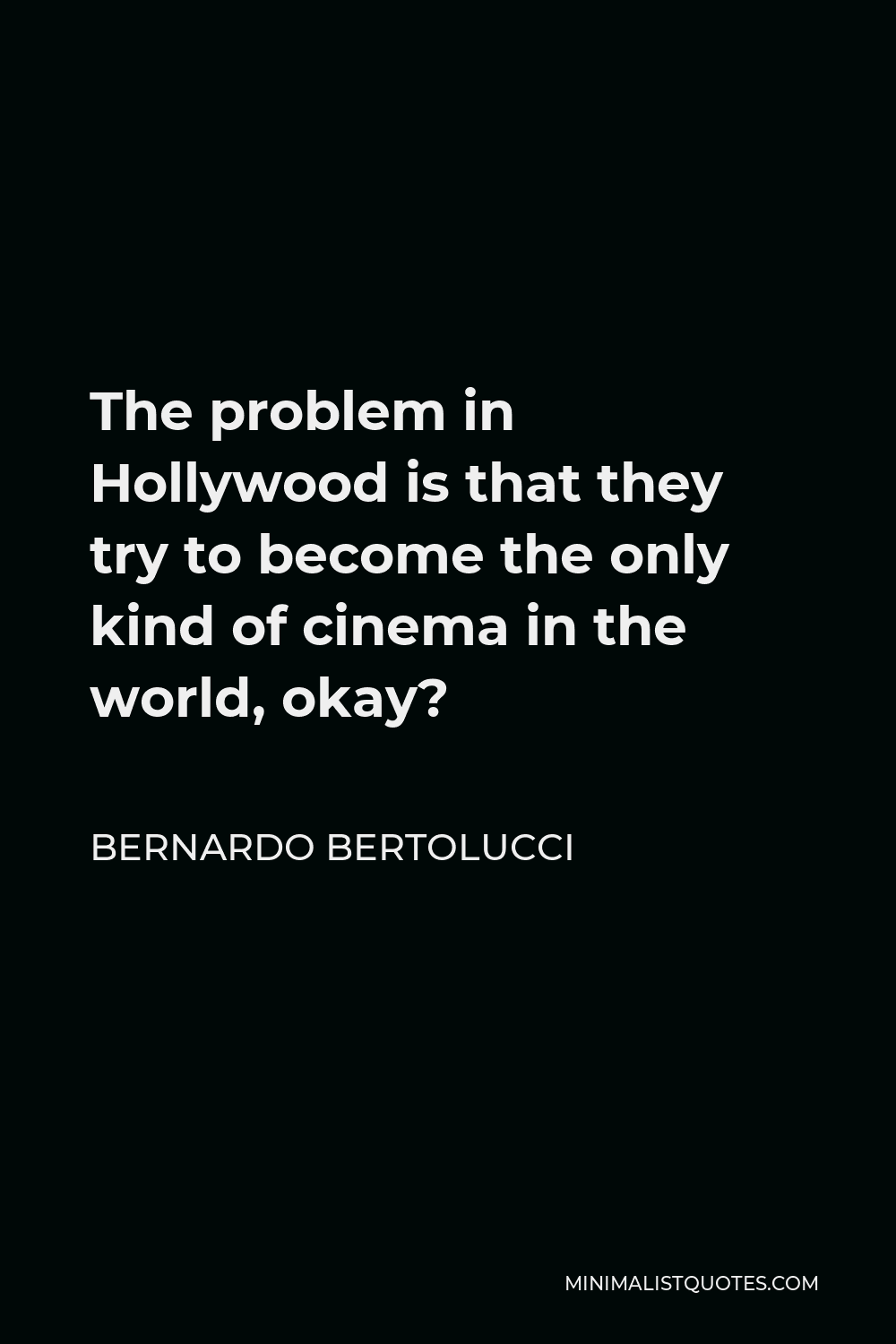
The problem in Hollywood is that they try to become the only kind of cinema in the world, okay?
BERNARDO BERTOLUCCI -





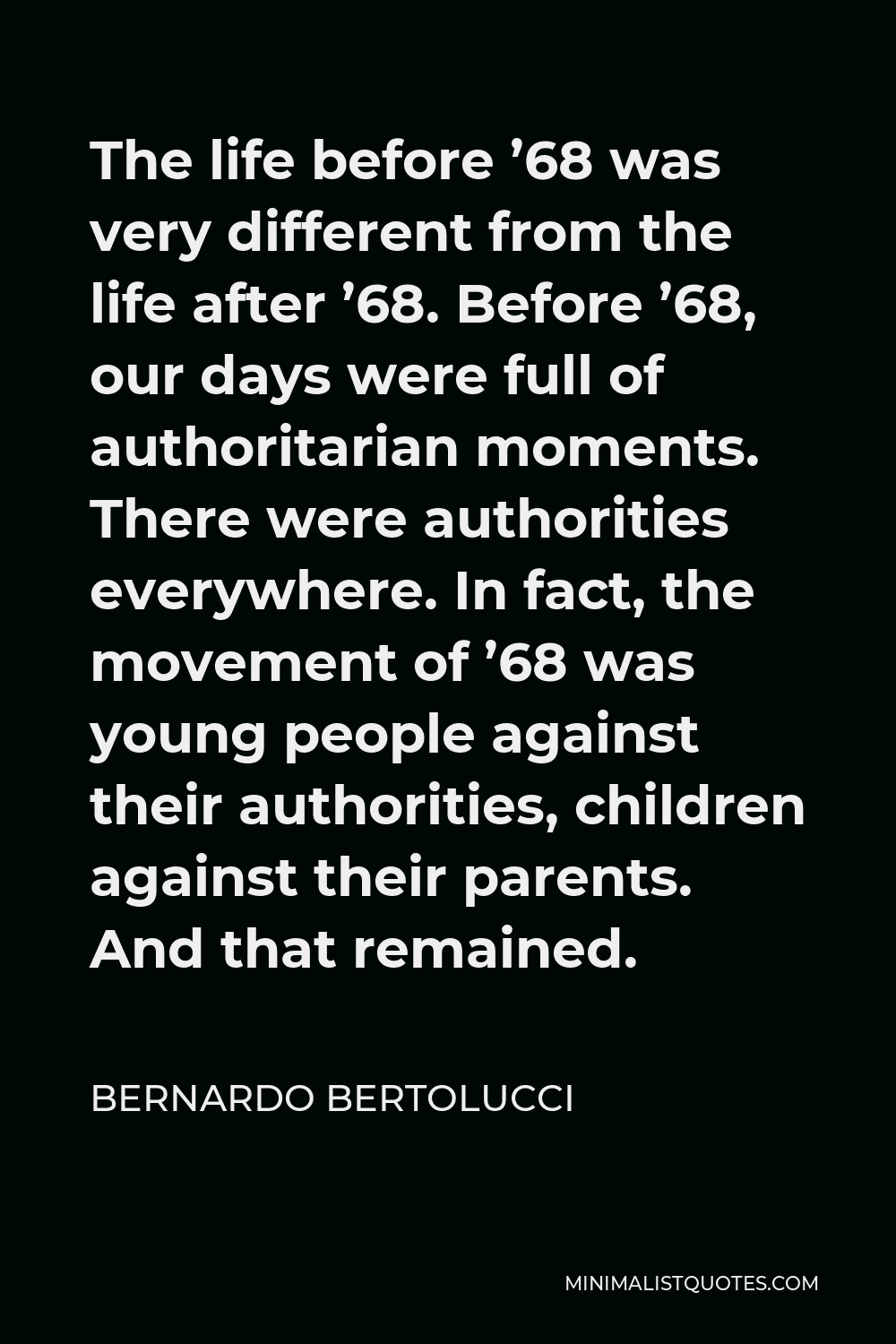
The life before ’68 was very different from the life after ’68. Before ’68, our days were full of authoritarian moments. There were authorities everywhere. In fact, the movement of ’68 was young people against their authorities, children against their parents. And that remained.
BERNARDO BERTOLUCCI -





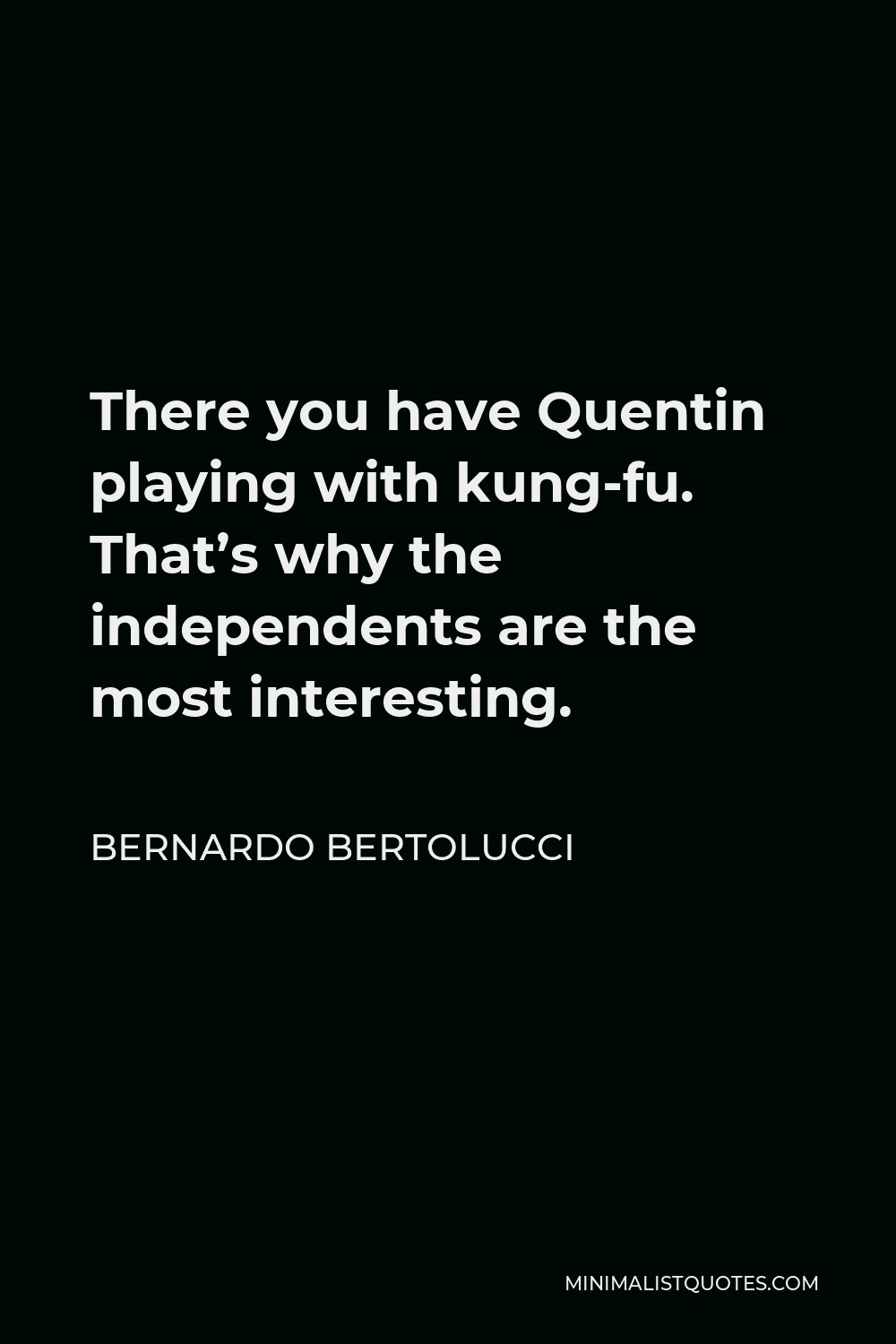
There you have Quentin playing with kung-fu. That’s why the independents are the most interesting.
BERNARDO BERTOLUCCI -





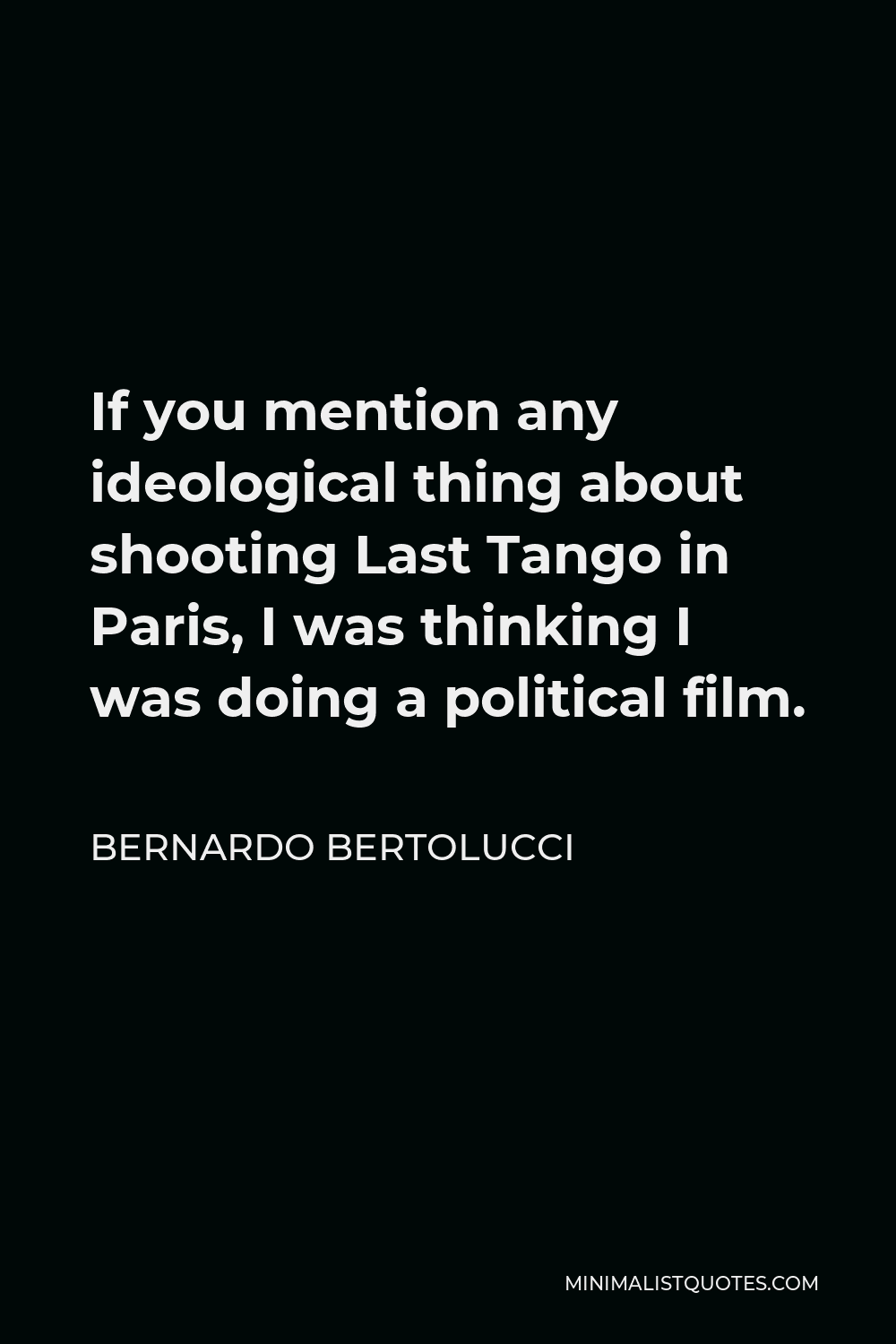
If you mention any ideological thing about shooting Last Tango in Paris, I was thinking I was doing a political film.
BERNARDO BERTOLUCCI -





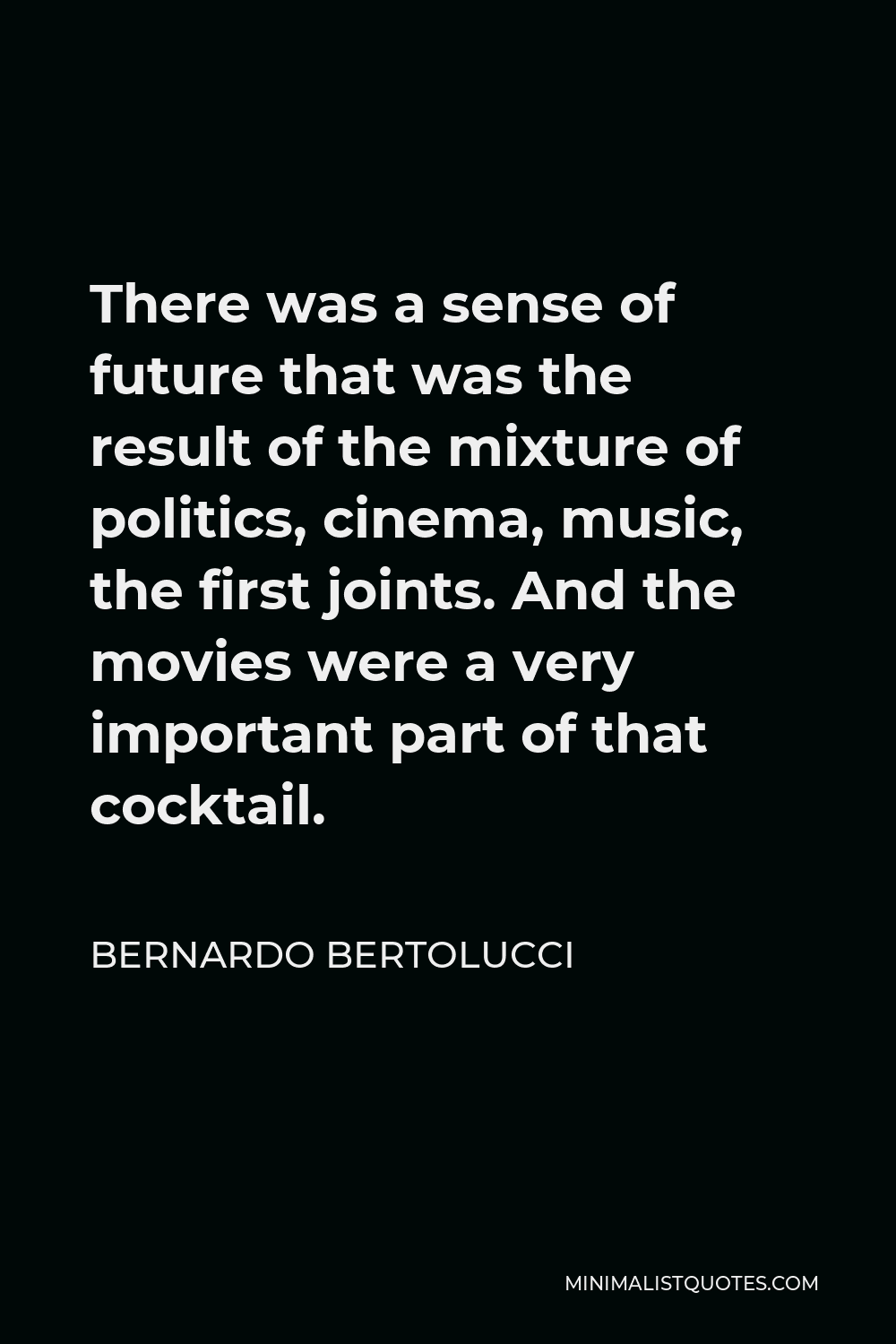
There was a sense of future that was the result of the mixture of politics, cinema, music, the first joints. And the movies were a very important part of that cocktail.
BERNARDO BERTOLUCCI

